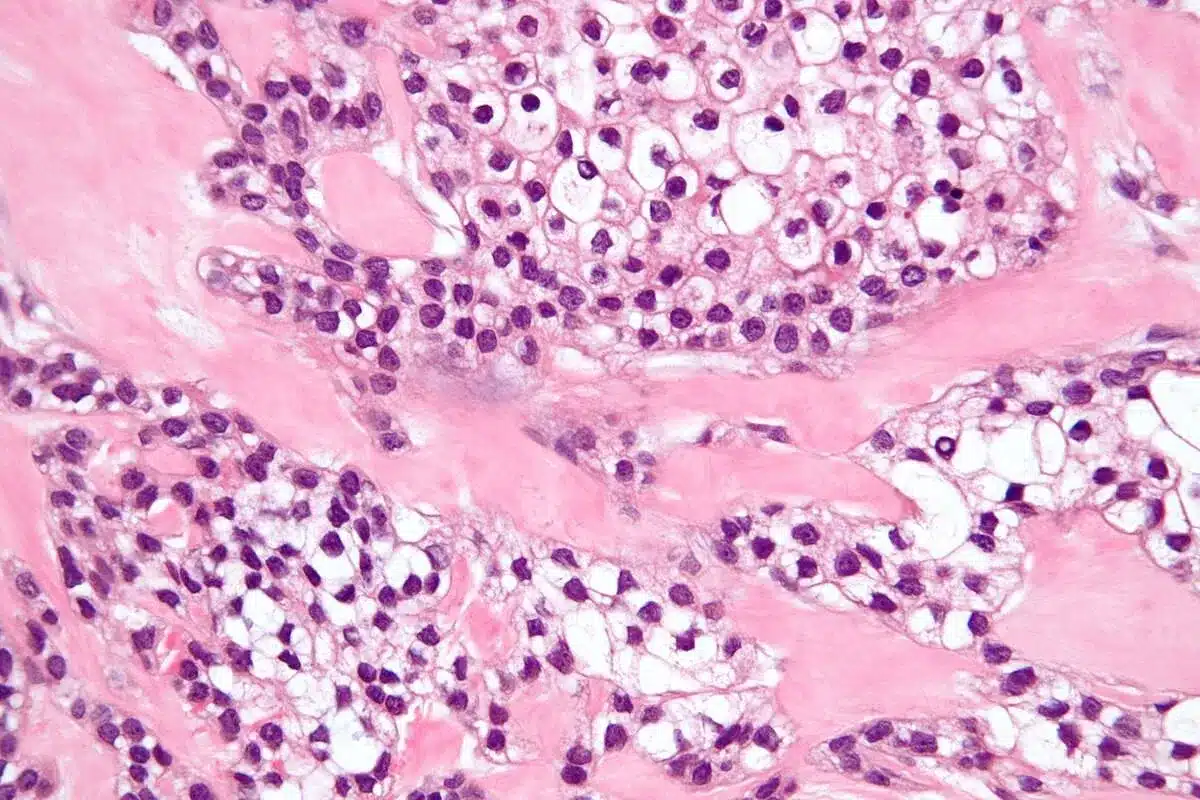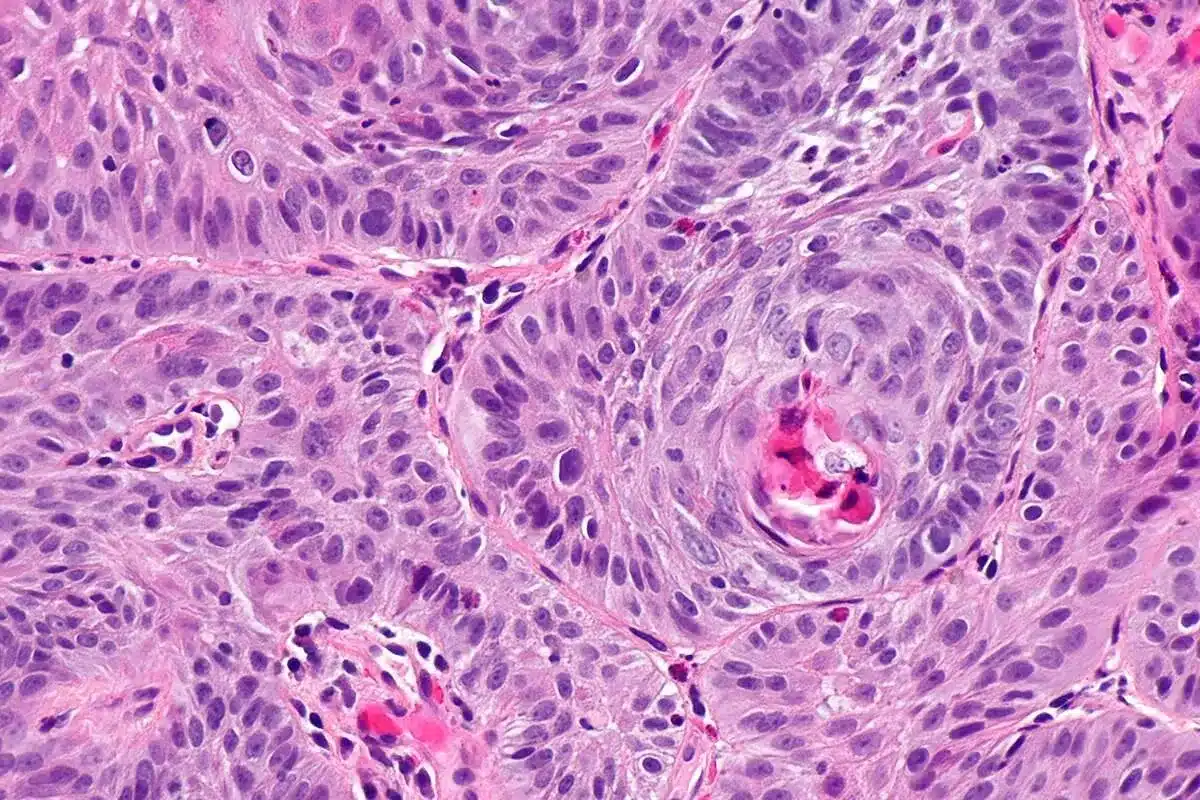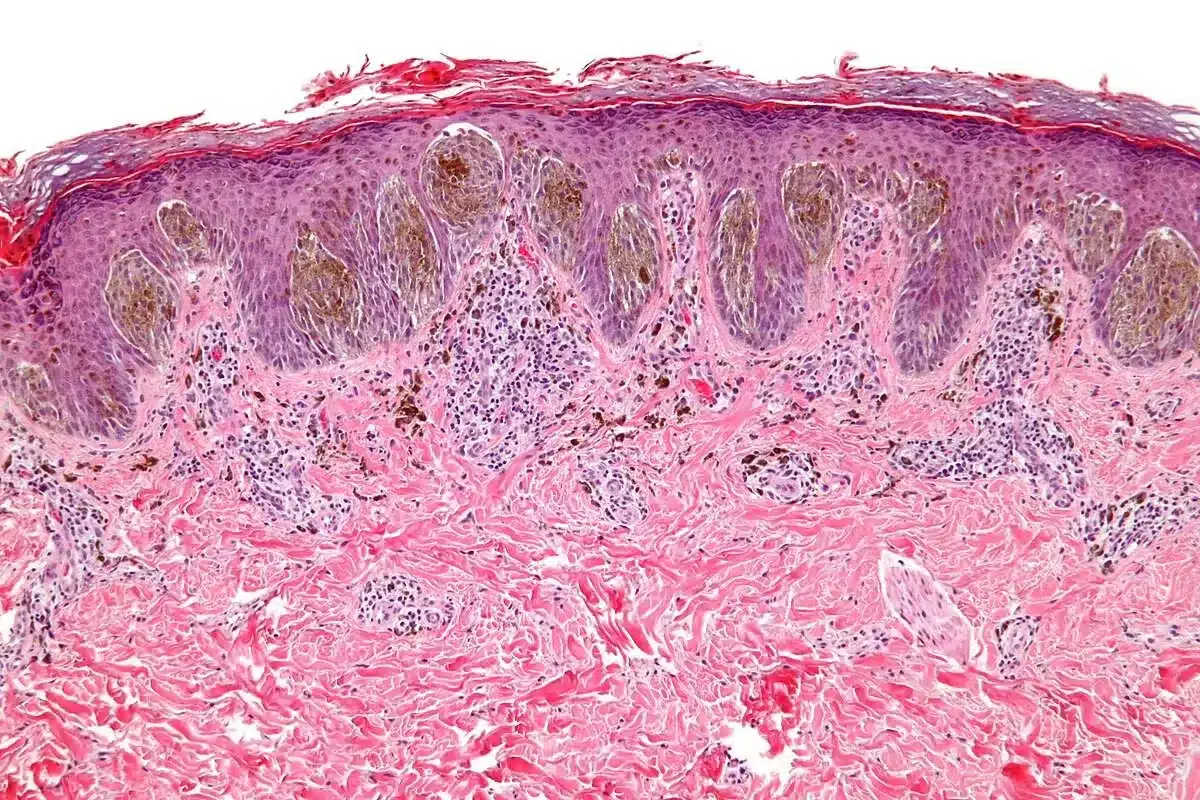Is Stage 4 Colorectal Cancer Curable? Getting a diagnosis of stage4 colorectal cancer can feel scary. But, new medical discoveries have made survival rates better and treatment choices wider. We know how worried international patients are about getting top-notch medical care. It’s key to look into what can cure or treat this disease.
The word “curable” might seem tricky when talking about stage4 colorectal cancer. Yet, many treatments can make life better and maybe even longer. We’ll look into the newest research and treatment choices out there.
Key Takeaways
- Advanced treatments are available for stage4 colorectal cancer.
- Survival rates have improved with recent medical advancements.
- Treatment options can enhance the quality of life.
- Personalized care is key for effective treatment.
- International patients have access to cutting-edge treatments.

Understanding Stage4 Colorectal Cancer
Stage 4 colorectal cancer is a serious stage where cancer has spread to distant organs or lymph nodes. It’s important for patients and doctors to understand this stage well. This helps in making the right treatment and care plans.
Definition and Staging Criteria
Stage 4 colorectal cancer means cancer has spread beyond the colon or rectum. The American Joint Committee on Cancer (AJCC) sets the staging criteria. They look at the tumor size, nearby lymph nodes, and if cancer has spread.
Table 1: TNM Staging System for Colorectal Cancer
| TNM Factor | Description |
| T (Tumor) | Extent of the primary tumor |
| N (Node) | Involvement of nearby lymph nodes |
| M (Metastasis) | Presence of cancer in distant organs or lymph nodes |
How Cancer Reaches Stage 4
Colorectal cancer becomes stage 4 when cancer cells spread through the body. This happens when cancer cells break away and travel to other parts of the body. Genetic changes, late diagnosis, and not treating cancer early enough can lead to stage 4.
Common Sites of Metastasis
The liver, lungs, peritoneum, and distant lymph nodes are common places for colorectal cancer to spread. The liver is often affected because of its blood supply and close location to the colon. Knowing where cancer spreads helps doctors plan better treatments.
Patients with stage 4 colorectal cancer need to work with their doctors. Together, they can figure out the best treatment based on where the cancer has spread.
The Reality of Stage4 Colorectal Cancer Prognosis
Being diagnosed with stage 4 colorectal cancer can feel overwhelming. We aim to provide clear, supportive information to help you understand.
Current Survival Statistics
Survival rates for stage 4 colorectal cancer have been getting better. This is thanks to new treatments. The 5-year survival rate is about 14% now.
But, it’s important to remember that survival rates can change a lot. This depends on many personal factors.
Key survival statistics to consider:
- Overall 5-year survival rate: around 14%
- Survival rates vary based on the site of metastasis
- Improvement in survival rates due to new treatments
Factors Affecting Prognosis
Many things can affect how well someone with stage 4 colorectal cancer will do. These include:
- The overall health of the patient
- The location and number of metastases
- Response to previous treatments
- Genetic mutations present in the tumor
Knowing these factors helps doctors create treatment plans that fit each person’s needs.
Interpreting Survival Rates Correctly
Understanding survival rates can be tricky. It’s key to remember that these rates are based on past data. They might not match your situation exactly.
Survival rates are not predictions; they are estimates based on large groups of people. Things like new treatments and your health can greatly affect your outcome.
Is Stage4 Colorectal Cancer Curable?
The question of whether stage 4 colorectal cancer is curable is complex. It depends on many factors. The term “cure” means getting rid of the disease completely. But for stage 4 patients, the situation is more complicated.
Defining “Cure” vs. “Remission”
In cancer treatment, “cure” and “remission” have different meanings. A “cure” means the cancer won’t come back. “Remission” means the disease is controlled, but it could return.
Getting a cure for stage 4 colorectal cancer is hard, but it’s not out of the question. For some, like those with oligometastatic disease, aggressive treatment can lead to long-term survival or even a cure.
Oligometastatic Disease and Curability
Oligometastatic disease means cancer has spread to a few places, usually less than five. Research shows that localized treatments like surgery or SBRT can help.
For patients with oligometastatic disease, a curative approach is possible. This can lead to long-term survival.
Long-term Survival Possibilities
Stage 4 colorectal cancer is considered advanced, but some patients survive long-term. New treatments like surgery, chemotherapy, targeted therapy, and immunotherapy have made a difference.
For some, combining these treatments can result in long survival or even a cure. But, every patient is different, and treatment plans must be personalized.
The journey with stage 4 colorectal cancer is personal and varies greatly. It depends on health, disease spread, and treatment response. As we find new treatments, the outlook for stage 4 patients keeps getting better.
Surgical Options for Metastatic Colorectal Cancer
Surgery is a key part of treating metastatic colorectal cancer. It offers hope for better outcomes. For stage 4 disease, different surgeries can be used, based on the cancer’s spread and location.
Resection of Primary Tumor
Deciding to remove the primary tumor is complex. It depends on symptoms, tumor location, and how far the cancer has spread. Removing the tumor can help with symptoms like blockages or bleeding, improving life quality.
Some think removing the primary tumor can also help the disease overall. But, this is a topic of debate among doctors.
Liver Metastasis Surgery
The liver is a common place for colorectal cancer to spread. Surgery to remove liver metastases is an option for those with limited disease in the liver. New surgical methods and care before and after surgery have made this option better.
We look at how many, how big, and where the metastases are. We also check the patient’s health and liver function. Imaging before surgery is key in planning.
Lung Metastasis Surgery
Surgery can be an option for colorectal cancer in the lungs in some cases. The aim is to remove all disease while keeping as much lung function as possible.
We consider the number and location of lung metastases, the patient’s lung health, and if there’s disease elsewhere. This helps decide if lung surgery is right.
HIPEC and Other Specialized Procedures
HIPEC (Hyperthermic Intraperitoneal Chemotherapy) is used for some with colorectal cancer in the peritoneum. This method involves heated chemotherapy in the abdominal cavity to target remaining cancer cells after surgery.
Other special treatments like radiofrequency and microwave ablation can also be used. These are less invasive options for treating liver or lung metastases.
Systemic Chemotherapy Approaches
Systemic chemotherapy is key in treating stage 4 colorectal cancer. It offers many treatment options. For those with this advanced disease, chemotherapy helps control cancer growth, eases symptoms, and boosts quality of life.
First-line Chemotherapy Regimens
The first chemotherapy choice depends on several factors. These include the patient’s health, any other health issues, and the tumor’s characteristics. Common choices are FOLFOX and FOLFIRI, which combine different drugs.
A study in the Journal of Clinical Oncology found FOLFOX and FOLFIRI are effective. They have response rates of 40% to 60% in treating metastatic colorectal cancer.
| Regimen | Components | Typical Use |
| FOLFOX | 5-fluorouracil, leucovorin, oxaliplatin | First-line treatment for metastatic colorectal cancer |
| FOLFIRI | 5-fluorouracil, leucovorin, irinotecan | First-line or second-line treatment, depending on previous therapy |
Second-line and Beyond Options
When first-line treatment fails or is no longer tolerated, second-line and later treatments are needed. The choice of these treatments depends on the first line used and the patient’s response.
Regorafenib and trifluridine/tipiracil are used in later treatments. They have been shown to extend life in patients who have tried other chemotherapy.
“The development of new therapeutic agents and combination regimens continues to evolve the treatment landscape for stage 4 colorectal cancer, providing hope for improved outcomes.”
Managing Side Effects
It’s important to manage chemotherapy side effects to keep quality of life high. Common side effects include nausea, fatigue, diarrhea, and neuropathy. Antiemetic drugs, dose adjustments, and supportive care can help.
Using G-CSF can prevent neutropenia, a condition that can lead to serious infections. Early reporting of side effects by patients can also improve outcomes.
Understanding systemic chemotherapy options and their management helps patients with stage 4 colorectal cancer. This knowledge can lead to better care choices, improving outcomes and quality of life.
Targeted Therapy Advancements
Targeted therapy has made big strides in treating stage 4 colorectal cancer. These treatments aim at cancer cells or their surroundings, sparing normal cells. This approach is key to better patient outcomes.
Anti-EGFR Therapies
Anti-EGFR therapies are vital for some stage 4 colorectal cancer patients. They block the EGFR protein, which helps cancer grow and spread. Cetuximab and panitumumab are two such therapies that work well on KRAS and NRAS wild-type tumors.
- Cetuximab boosts survival when paired with chemotherapy.
- Panitumumab also improves outcomes, mainly in patients with non-mutated KRAS and NRAS genes.
Anti-VEGF Therapies
Anti-VEGF therapies target tumor blood vessels, slowing their growth. Bevacizumab is a leading anti-VEGF therapy for stage 4 colorectal cancer. It enhances survival when combined with chemotherapy.
- Bevacizumab blocks VEGF, cutting off tumor blood supply.
- It’s used in both initial and follow-up treatments.
Biomarker-Driven Treatment Selection
Choosing targeted therapies now depends on biomarker tests. Biomarkers like KRAS, NRAS, and BRAF mutations help predict therapy success. Biomarker-driven treatment selection makes cancer care more tailored, leading to better results and fewer side effects.
- Patients with KRAS and NRAS wild-type tumors benefit most from anti-EGFR therapies.
- BRAF mutations suggest a poorer outlook but guide targeted treatments.
By using targeted therapies, we can give stage 4 colorectal cancer patients more effective, personalized care. The constant development of new treatments and biomarkers keeps improving our chances of better outcomes.
Immunotherapy’s Role in Advanced Colorectal Cancer
Immunotherapy has changed how we treat advanced colorectal cancer. It uses the body’s immune system to fight cancer. This approach is very promising for some patients.
MSI-High and dMMR Tumors
Immunotherapy has made a big leap forward in treating colorectal cancer. It works best for tumors with high microsatellite instability (MSI-high) or deficient mismatch repair (dMMR). These patients often see great benefits from immunotherapy.
These tumors have a lot of mutations. This makes them easier for the immune system to spot and attack. This is key for immunotherapy to work well.
Key characteristics of MSI-high/dMMR tumors include:
- High mutational burden
- Increased neoantigen expression
- Enhanced immune cell infiltration
Checkpoint Inhibitors
Checkpoint inhibitors are a type of immunotherapy that’s very promising. They help the immune system fight cancer cells better. This is by removing the brakes that hold it back.
Drugs like pembrolizumab and nivolumab are approved for MSI-high/dMMR colorectal cancer. They can lead to long-lasting responses in patients who have tried other treatments.
“The advent of checkpoint inhibitors has revolutionized the treatment landscape for patients with MSI-high/dMMR advanced colorectal cancer, opening up a new era of care with lasting benefits.”
Combination Approaches
While checkpoint inhibitors work well alone, researchers are looking into combining them with other treatments. This includes other immunotherapies, targeted therapies, or chemotherapy. They’re testing these combinations in clinical trials.
Some promising combinations include:
- Checkpoint inhibitors + chemotherapy
- Checkpoint inhibitors + targeted therapies
- Checkpoint inhibitors + other immunotherapies
These combinations aim to make treatments even more effective. They hope to improve how well treatments work and how long they last for patients with advanced colorectal cancer.
Radiation Therapy Applications
Radiation therapy is key in treating stage 4 colorectal cancer. It’s used for many reasons, like easing symptoms and sometimes to cure cancer.
Palliative Radiation
Palliative radiation helps patients with advanced colorectal cancer feel better. It aims to reduce pain, bleeding, and other issues caused by the tumor.
For example, it can help with:
- Pain from bone metastases
- Bleeding from the primary tumor or metastases
- Obstruction caused by tumor growth
Stereotactic Body Radiation Therapy
Stereotactic Body Radiation Therapy (SBRT) is a precise way to treat tumors. It’s great for treating cancer that has spread to a few places.
| Characteristics | SBRT | Conventional Radiation |
| Dose per fraction | High (e.g., 20 Gy per fraction) | Lower (e.g., 2 Gy per fraction) |
| Number of fractions | Fewer (1-5 fractions) | More (20-30 fractions) |
| Precision | Highly precise | Less precise |
Radiation for Oligometastatic Disease
For patients with cancer in a few places, radiation can aim to cure cancer. SBRT is often chosen because it targets tumors well while protecting healthy tissue.
“The use of SBRT in oligometastatic colorectal cancer has shown promising results in terms of local control and overall survival.” – A Radiation Oncologist
We’re always looking to improve radiation therapy for stage 4 colorectal cancer. This brings new hope and better results for our patients.
Genetic Testing and Personalized Medicine
Genetic testing has changed how we treat stage 4 colorectal cancer. It lets us tailor treatments to each patient’s needs. This leads to better care and outcomes.
Important Biomarkers in Colorectal Cancer
Genetic testing finds key biomarkers for treatment. These biomarkers are vital for choosing the right treatment. Here are some important ones:
- RAS mutations: Knowing if a tumor has RAS mutations helps decide if anti-EGFR therapies are right.
- BRAF mutations: Tumors with BRAF mutations might need special treatments because they can resist some therapies.
- MSI-H/dMMR status: Tumors that are MSI-H or dMMR might do well with immunotherapies.
How Genetic Testing Guides Treatment
Genetic testing helps make treatment choices in several ways:
- Targeted Therapies: It helps pick targeted therapies that are likely to work.
- Predictive Biomarkers: Biomarkers can show how well a patient might do with a treatment, guiding decisions.
- Clinical Trials Eligibility: It can tell if a patient can join specific clinical trials, giving access to new treatments.
Next-Generation Sequencing Benefits
Next-generation sequencing (NGS) is a powerful tool. It analyzes many genes at once. The benefits include:
- Comprehensive Analysis: NGS looks at many genes and biomarkers in one test, giving a detailed view of the tumor’s genetics.
- Identification of Rare Mutations: It finds rare mutations that other tests might miss, revealing new treatment options.
- Efficient Testing: Analyzing many genes at once means fewer tests, making the process faster.
Differences Between Stage4 Colon and Rectal Cancer
Stage 4 colon and rectal cancer are not just different in where they are in the body. They also affect how long you might live and what treatments you can get. Each type of cancer needs its own approach to treatment.
Treatment Approach Variations
When it comes to treating Stage 4 colon and rectal cancer, the location matters a lot. Rectal cancer is closer to important parts of the body. This means doctors might use radiation to help control the cancer.
A study in the Journal of Clinical Oncology found that adding radiation before surgery helped Stage 4 rectal cancer patients. They did better than those who only had surgery.
“Neoadjuvant chemoradiation significantly improves local control and overall survival in patients with Stage 4 rectal cancer.”
For Stage 4 colon cancer, the focus is on removing the tumor and any cancer that has spread. Doctors might also consider using HIPEC (Hyperthermic Intraperitoneal Chemotherapy) for cancer in the lining of the abdomen.
| Treatment Aspect | Stage 4 Colon Cancer | Stage 4 Rectal Cancer |
| Surgery | Primary tumor resection and metastasectomy | Total mesorectal excision (TME) with possible neoadjuvant chemoradiation |
| Radiation Therapy | Less commonly used for distant metastases | Often used for local control and palliation |
Prognosis Differences
The outlook for Stage 4 colon and rectal cancer depends on several things. These include how far the cancer has spread and the patient’s overall health. The 5-year survival rate for Stage 4 colorectal cancer is about 14%, according to the American Cancer Society.
But, this rate can change based on the type of cancer and the treatments used. A big factor is whether the cancer is in the colon or rectum.
Having oligometastatic disease can also affect how well you might do. This means the cancer has spread to a few places. In such cases, doctors might try more aggressive treatments to try to cure you.
Specialized Considerations
For both Stage 4 colon and rectal cancer, genetic testing and biomarker analysis are key. Knowing about certain genetic markers can help choose the right treatments.
Also, adding palliative care is very important. It helps manage symptoms, improve quality of life, and support patients and their families during treatment.
Breakthrough Clinical Trials and Emerging Treatments
Clinical trials are leading the way in finding new treatments for stage 4 colorectal cancer. In recent years, we’ve made big strides in understanding this disease. We’ve also developed new therapies.
Novel Targeted Therapies
Targeted therapies have changed how we treat cancer, including stage 4 colorectal cancer. Novel targeted therapies are being tested in clinical trials. They focus on specific parts of cancer cells that help them grow and spread.
One area of hope is therapies that target the HER2 protein. This protein is found in some colorectal cancers. Researchers are looking at how well these therapies work, either alone or with other treatments.
Immunotherapy Innovations
Immunotherapy is a powerful new tool in cancer treatment. Checkpoint inhibitors are a key part of this. For stage 4 colorectal cancer, immunotherapy is very promising for patients with MSI-High or dMMR tumors. These patients have shown great responses to checkpoint inhibitors.
Researchers are now looking at combining checkpoint inhibitors with other treatments. They hope to make these therapies even more effective and help more patients.
How to Access Clinical Trials
Getting into clinical trials is a big step for patients looking for new treatments. We suggest talking to your doctor about your options. They can find trials that fit your situation and medical history.
Patients can also search for trials on sites like ClinicalTrials.gov. It’s important to check if you qualify and understand the risks and benefits before joining a trial.
Comprehensive Care Approach
Patients with Stage 4 Colorectal Cancer need a care plan that covers all aspects of their health. This plan includes medical treatments and support for their emotional and lifestyle needs. It’s a holistic approach that goes beyond just treating the disease.
Multidisciplinary Tumor Boards
Multidisciplinary tumor boards are a key part of this care plan. Here, doctors from different fields work together to plan treatment. This teamwork helps ensure that patients get the best care possible.
Benefits of Multidisciplinary Tumor Boards:
- Improved treatment planning through collective expertise
- Enhanced coordination among different specialties
- Better patient outcomes due to thorough care planning
Integrating Supportive Care
Supportive care is essential for managing symptoms and side effects of Stage 4 Colorectal Cancer. It helps patients live better lives during treatment. By adding supportive care, patients can enjoy a better quality of life.
| Supportive Care Services | Description |
| Pain Management | Effective management of pain to improve patient comfort |
| Nutritional Counseling | Guidance on diet and nutrition to support treatment and overall health |
| Emotional Support | Counseling and support groups to address emotional and psychological needs |
Nutrition and Exercise Considerations
Nutrition and exercise are important parts of a complete care plan. Eating right can help manage side effects, and staying active can boost well-being. It can also help improve treatment results.
Nutritional Tips:
- Stay hydrated by drinking plenty of water
- Consume a balanced diet rich in fruits, vegetables, and whole grains
- Avoid foods that can worsen treatment side effects
By using a complete care plan, patients with Stage 4 Colorectal Cancer get a treatment that focuses on their overall health. This approach helps them feel better and live better lives.
Palliative Care: Improving Quality of Life
For those with stage 4 colorectal cancer, palliative care is key. It helps improve their life quality. This care focuses on easing symptoms, pain, and stress from serious illnesses.
When Palliative Care Is Appropriate
Palliative care is right at any serious illness stage, even at first diagnosis. For stage 4 colorectal cancer, it can be given with treatments meant to cure or when cure is not the goal.
Every patient is different. Palliative care teams aim to meet each person’s needs fully.
Pain and Symptom Management
Managing pain and symptoms well is vital in palliative care. Our teams work with patients to check their symptoms and create plans just for them.
| Symptom | Management Approach | Benefits |
| Pain | Medication, nerve blocks, physical therapy | Reduced pain, improved mobility |
| Nausea and Vomiting | Antiemetic medications, dietary changes | Improved nutrition, reduced discomfort |
| Shortness of Breath | Oxygen therapy, medication, breathing exercises | Eased breathing, reduced anxiety |
Emotional and Psychological Support
Palliative care also offers emotional and psychological support. It knows a serious diagnosis affects body, mind, and spirit. Our teams include psychologists, social workers, and chaplains for support.
Emotional support includes counseling, support groups, and therapy. It helps patients and families deal with the diagnosis and treatment.
By adding palliative care to their treatment, stage 4 colorectal cancer patients can live better. They get better symptom control and emotional and psychological support.
Coping Strategies and Support Resources
Dealing with stage 4 colorectal cancer needs a mix of medical care, emotional support, and practical help. Patients and their families can really benefit from knowing about the different ways to cope and the support available.
Patient Support Organizations
Support groups and organizations are key in giving emotional support, educational materials, and connecting people with others facing similar challenges. Some important groups include:
- Colorectal Cancer Alliance: Offers support groups, educational materials, and advocacy.
- CancerCare: Provides counseling, support groups, and financial help for cancer-related costs.
- American Cancer Society: Offers support groups, patient navigation, and educational resources.
Financial Assistance Programs
The cost of cancer treatment can be very high. Luckily, there are financial help programs to ease some of the financial stress. These include:
| Program | Description | Eligibility |
| Patient Access Network Foundation | Provides financial help for patients who can’t afford their treatment | Patients with a valid prescription and limited insurance |
| Cancer Financial Assistance Coalition | Offers a database of financial help programs | Varies by program |
| HealthWell Foundation | Provides copay help for patients with limited financial means | Patients with specific insurance and income levels |
Caregiver Support and Resources
Caregivers are very important in supporting patients with stage 4 colorectal cancer. It’s vital for caregivers to have resources to help them manage their duties and take care of themselves. Some valuable resources include:
- Caregiver Support Groups: Many organizations offer support groups for caregivers, where they can share experiences and get support.
- Respite Care Services: Services that give caregivers temporary breaks, allowing them to rest or take care of personal matters.
- Educational Resources: Organizations like CancerCare provide educational materials and workshops for caregivers.
By using these coping strategies and support resources, patients with stage 4 colorectal cancer and their caregivers can better handle the challenges of the disease.
Conclusion: Navigating Stage4 Colorectal Cancer
Dealing with stage4 colorectal cancer is tough, but there are many ways to help. Treatment options and support are available to make it easier.
We’ve looked into the details of stage4 colorectal cancer. This includes what it is, how it’s treated, and the chances of recovery. A full care plan, including surgery and medicine, can really help patients.
There are many ways to treat stage4 colorectal cancer. This includes surgery, medicine, and even radiation. New tests and treatments mean doctors can make plans just for you.
Support groups and financial help are key for those facing stage4 colorectal cancer. They offer emotional and practical support. This makes life better for patients.
Even though stage4 colorectal cancer is hard, we’re optimistic. Medical research and new treatments are making a difference. Together, we can make care better and support patients every step of the way.
FAQ
What is stage4 colorectal cancer, and how is it diagnosed?
Stage4 colorectal cancer is the most advanced stage. It means the cancer has spread to distant organs or lymph nodes. Doctors use CT scans, MRI, or PET scans to diagnose it. A biopsy confirms the diagnosis.
Is stage4 colorectal cancer curable?
Stage4 colorectal cancer is considered advanced and not always curable. But, some patients with limited metastases might be treated with surgery and other local therapies with the goal of curing them.
What are the common sites for metastasis in stage4 colorectal cancer?
The liver, lungs, peritoneum, and distant lymph nodes are the most common places for metastasis in stage4 colorectal cancer.
What are the treatment options for stage4 colorectal cancer?
Treatment options include surgery, chemotherapy, targeted therapy, immunotherapy, and radiation therapy. These are often used together.
How does chemotherapy work for stage4 colorectal cancer?
Chemotherapy kills cancer cells. It’s given intravenously or orally. It’s used as a first treatment or after other treatments.
What is targeted therapy, and how is it used in stage4 colorectal cancer?
Targeted therapy uses medications that target cancer cells or proteins involved in cancer growth. It includes anti-EGFR or anti-VEGF therapies to slow or stop cancer.
What is immunotherapy, and how is it used in stage4 colorectal cancer?
Immunotherapy uses medications to boost the immune system’s ability to fight cancer cells. It’s effective for MSI-high and dMMR tumors.
Can stage4 colorectal cancer be treated with surgery?
Surgery is an option for some stage4 colorectal cancer patients, mainly those with limited metastases. It can involve removing the primary tumor, liver or lung metastases, or other procedures like HIPEC.
What is the role of palliative care in stage4 colorectal cancer?
Palliative care improves the quality of life for patients with stage4 colorectal cancer. It manages symptoms, pain, and emotional distress. It’s suitable at any stage of treatment.
Are there any clinical trials available for stage4 colorectal cancer?
Yes, there are ongoing clinical trials for stage4 colorectal cancer. They explore new treatments, including targeted therapies, immunotherapy, and more. Patients can find them through healthcare providers or online.
How can patients with stage4 colorectal cancer access support resources?
Patients can find support through patient organizations, financial assistance programs, and caregiver resources. These help with the challenges of cancer treatment.
What is the importance of genetic testing in stage4 colorectal cancer?
Genetic testing is key in stage4 colorectal cancer. It identifies biomarkers that guide treatment decisions. It also determines eligibility for targeted therapies or immunotherapy.
How does stage4 colon cancer differ from stage4 rectal cancer?
Both stage 4 colon and rectal cancer are advanced. But, treatment approaches, prognosis, and considerations differ. Rectal cancer often needs more complex local therapies.
What is the significance of a holistic care approach for stage4 colorectal cancer?
A holistic care approach for stage4 colorectal cancer integrates surgery, medical oncology, radiation oncology, and supportive care. It aims to provide the best treatment and improve patient outcomes.








